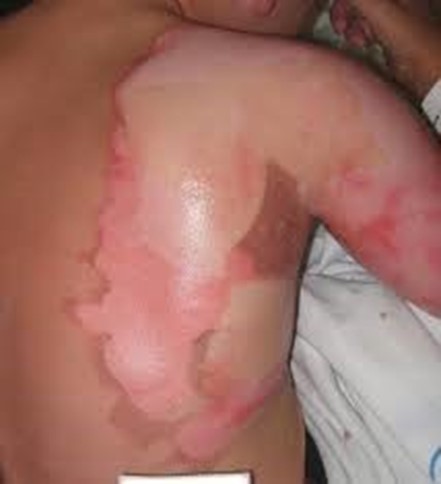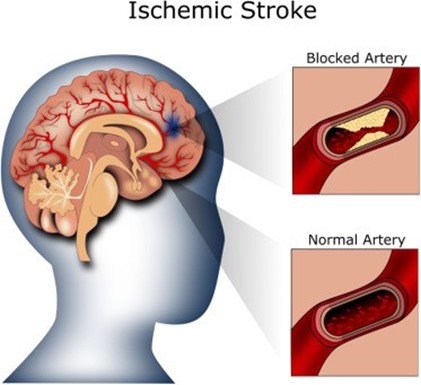A nurse is caring for a client in the emergency department who experienced a full-thickness burn injury to the lower torso 1 hr ago.
Which of the following findings should the nurse expect?
Urinary diuresis.
Hypotension.
Decreased respiratory rate.
Bradycardia.
The Correct Answer is B

A full-thickness burn injury can result in fluid loss and low blood volume (hypovolemia), which can lead to hypotension.
Choice A, Urinary diuresis, is not the correct answer because it refers to increased production of urine and is not a common symptom of a full-thickness burn injury.
Choice C, Decreased respiratory rate, is not the correct answer because it refers to a decrease in the number of breaths per minute and is not a common symptom of a full-thickness burn injury.
Choice D, Bradycardia, is not the correct answer because it refers to a slow heart rate and is not a common symptom of a full-thickness burn injury.
Nursing Test Bank
Naxlex Comprehensive Predictor Exams
Related Questions
Correct Answer is A
Explanation
The nurse should ensure that the client is discharged with antithrombotic pharmacologic therapy.

Antithrombotic medications help prevent blood clots from forming and can reduce the risk of another ischemic stroke.
Choice B is wrong because diuretics are used to treat fluid retention and high blood pressure and are not typically used for stroke prevention.
Choice C is wrong because anticonvulsants are used to prevent seizures and are not typically used for stroke prevention.
Choice D is wrong because opioid analgesics are used to treat pain and are not typically used for stroke prevention.
Correct Answer is C
Explanation
“Weight loss of.8 kg (4 Ib) in the past 24 hr.” Furosemide is a diuretic that decreases the pressure caused by excess fluid in the heart and lungs.
A weight loss of.8 kg (4 Ib) in the past 24 hr indicates that excess fluid is being removed from the body, which is a sign that the medication is effective.
Choice A is incorrect because adventitious breath sounds are a symptom of pulmonary edema, not an indication that the medication is effective.
Choice B is incorrect because furosemide has direct vasodilatory outcomes 2, which would decrease blood pressure, not elevate it.
Choice D is incorrect because there is no information found to support this statement.
Whether you are a student looking to ace your exams or a practicing nurse seeking to enhance your expertise , our nursing education contents will empower you with the confidence and competence to make a difference in the lives of patients and become a respected leader in the healthcare field.
Visit Naxlex, invest in your future and unlock endless possibilities with our unparalleled nursing education contents today
Report Wrong Answer on the Current Question
Do you disagree with the answer? If yes, what is your expected answer? Explain.
Kindly be descriptive with the issue you are facing.
